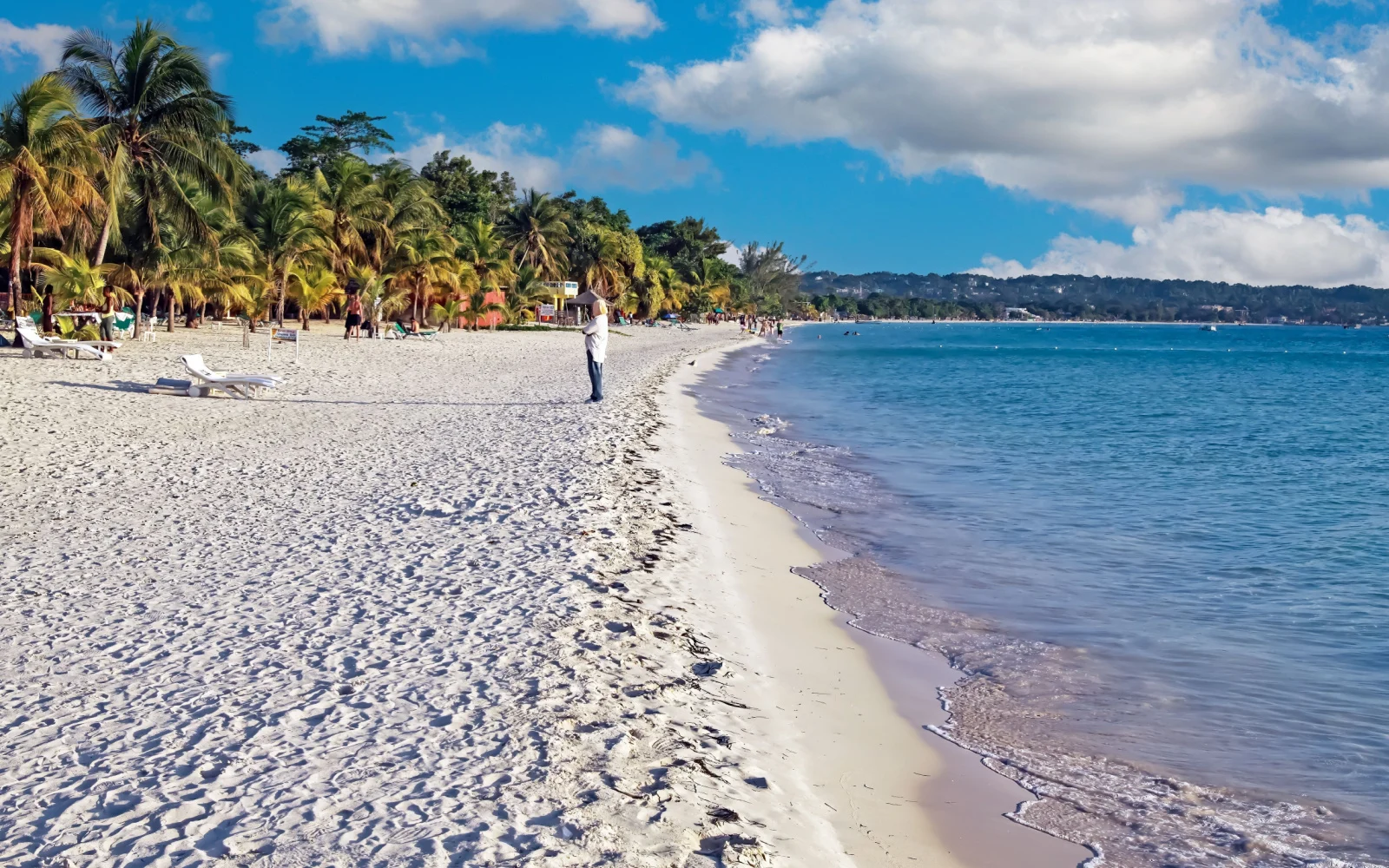Is Jamaica safe to visit in 2026?
Beautiful Jamaica is a favorite tourist destination for many people. Every year, over 4 million people visit Jamaica to check out the beautiful beaches and pristine waters of the Caribbean Sea.
Besides beautiful beaches, Jamaica has a culture like nowhere else that many people love to discover when they visit. Listen to the many genres of music that were invented on the island, from reggae to dancehall, and check out the famous cuisine.
But while this tropical paradise is visited by millions of tourists each year, is Jamaica safe to visit? Here’s our take.
Is Jamaica Safe to Visit in 2026?
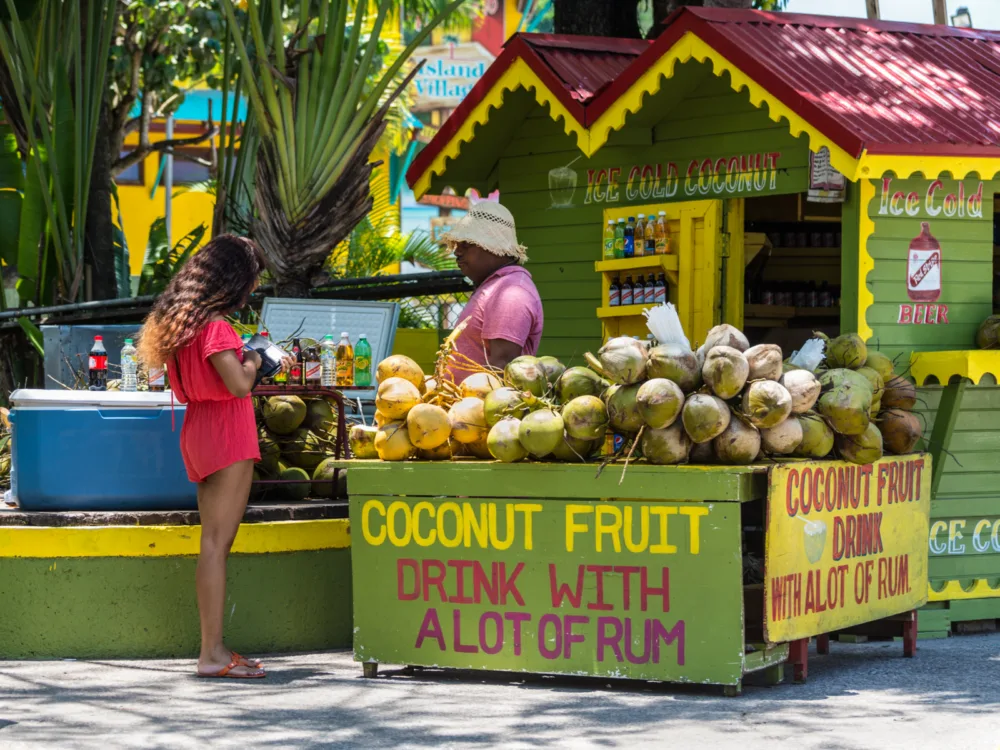
byvalet/Shutterstock
Yes and no. Unfortunately, the statistics prove that Jamaica is one of the least safe destinations in the Caribbean. The island has a very high level of crime, including violent crime, which often affects tourists.
However, we should note that, just like in Mexico, if you stay on the resort and don’t venture out into the town, you should have a safe and uneventful trip. But these statistics are often times why Jamaican resorts are less expensive than comparable resorts in Mexico or the Caribbean.
You will need to be on high guard when you visit Jamaica or choose to visit a safer Caribbean island instead. Many governments warn their citizens to be careful when visiting Jamaica precisely due to this high crime rate.
For example, the New Zealand government advises its citizens to exercise increased caution in Jamaica due to high crime rates.
The United States is even more stringent, advising its citizens to reconsider travel altogether to Jamaica due to high rates of violent crime. Jamaica has high rates of many crimes, of which the most concerning are obviously violent crime incidents.
The most common ones include:
- Murder
- Armed robbery
- Assault
- Kidnapping
- Sexual assault
- Gang violence
That said, most tourists who stay on the resort have an event-free trip, but there’s no denying that the crime rate is more elevated than other places in the Caribbean.
This does, however, come with the benefit of lower demand, meaning resort prices are often times a better value than other destinations. There are a few reasons why Jamaica has such a high rate of criminal activity.
InSight Crime explains that Jamaica has strong gangs, many of which were directly empowered by rival political parties in the 20th century in attempts to shore up power.
Although the government is now attempting to crack down on these gangs, the crackdown efforts have, in many ways, led the gangs to become even more brutal. These gangs are behind the vast majority of the violent crime incidents that plague Jamaica.
As a tourist, you definitely don’t want to have a run-in with Jamaica’s infamous gang leaders. However, it is fairly easy as a tourist to avoid interacting with them if you stay away from breaking the law and avoid gang-ridden areas.
Gang violence primarily affects locals, not tourists. In fact, most of the violent crimes listed above affect locals far more than they affect tourists.
Tourists are more likely to encounter pettier crime incidents such as:
- Pickpocketing
- Vehicle break-ins
- Bag snatching
- Scams
- Sexual harassment
While those incidents are certainly unpleasant, they aren’t life-threatening by any means. Staying in a secure area such as a private resort with its own security will almost completely insulate you from the risk of crime.
Besides crime, you should be aware of a few more natural risks that Jamaica presents. Jamaica is in the Caribbean Sea, which means that it is affected by hurricane season. The most active months are September and October, so avoid traveling to the island during that time.
Jamaica also has a lot of bugs, including mosquitos and tiny gnats called no-see-ums, so make sure you use plenty of bug spray (and ask your doctor if you need to get vaccinated against mosquito-borne diseases).
Ready to Book?
Unlock Exclusive Discounts on Expedia.com!
Got Travel Insurance?
Protect yourself for unexpected interruptions.
Compare Plans We may be compensated when you book after clicking on one of our links.Crime in Jamaica
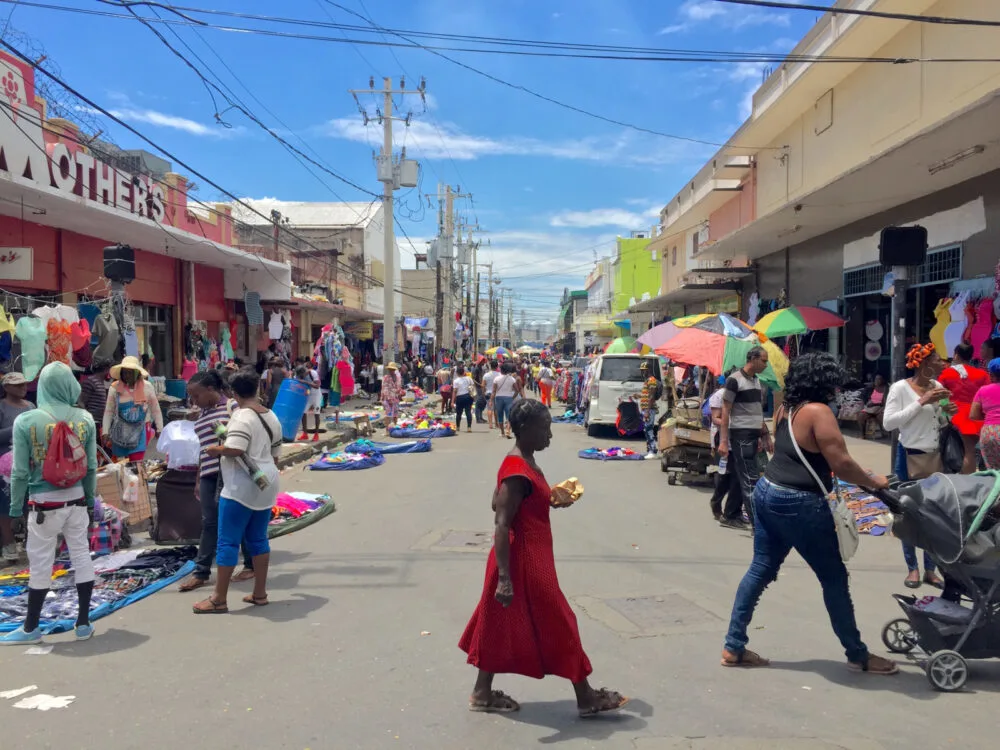
Delaflow/Shutterstock
Crime is the primary reason many tourists are concerned about visiting Jamaica, and with good reason. The country has one of the highest crime levels, not just in the Caribbean but in all of the Americas.
According to a Statista graph, Jamaica has the highest homicide rate in the Americas, with 52.9 incidents per 100,000 inhabitants.
That is a worse crime rate than in other countries that are perceived as crime-ridden, such as Venezuela, Honduras, or Mexico. Besides homicide, rates of other violent crimes, such as assault, kidnapping, and armed robbery, are also very high.
As mentioned above, organized criminal gangs are one of the driving forces behind the extremely high crime rate in Jamaica. According to the Global Organized Crime Index, Jamaica has the worst rate of organized crime in the Caribbean and one of the worst in the Americas as a whole.
Gangs are behind many illegal activities, including arms trafficking, the drug trade to the United States and Canada, and other criminal activities such as organized lottery scams.
To crack down on gang violence, the government periodically issues regional states of emergency that have specific measures, such as the right to stop and search and implement a curfew, that are supposed to help local law enforcement agencies crack down on gang violence.
In March of 2023, the Jamaican prime minister declared a state of emergency in several parishes, including St. James Parish, which contains the popular tourist destination of Montego Bay.
States of emergency are frequent and often affect tourist destinations, so you should know what to do in case of one. Research your travel ahead of time and stay on top of local news while you are there so that you know what you are getting into.
The UK government advises its citizens to cooperate with law enforcement to the best of their abilities.
Operations will usually target locals, but make sure you always have your ID on you in case you get stopped, follow directions, and respect curfew rules. States of emergency sometimes mean roads and businesses will be closed, so you may want to change your travel plans.
Robbery
The most common crime affecting tourists in Jamaica is robbery, in all of its forms. Usually, tourists are victims of pettier forms of robbery, such as pickpocketing and bag snatching.
The Australian government warns tourists that popular tourist destinations, such as Old Kingston, are hotspots for pickpockets. Beaches are other places where thieves operate, so make sure that you don’t take a lot of valuables with you when you go swimming.
Of course, you can minimize your risk of pickpocketing by taking the same common-sense precautions you would take anywhere else. Don’t flash valuable objects such as jewelry or watches — better yet, leave them at home to avoid tempting robbers.
Use secure bags such as zippered fanny packs or money belts, not loose totes, and always keep a firm grip on your possessions. Choosing the right accommodation can also go a long way towards helping you (and your valuables) stay safe.
Hotel thefts and break-ins are fairly common in Jamaica. Make sure that you pick a hotel or resort with good reviews and strong security, such as property walls or reinforced doors.
Keep valuables in a room safe if possible, as more people have access to a hotel safe and can walk away with your valuables. Always lock your hotel room doors and windows.
Finally, thoroughly research the neighborhood of the hotel, as you don’t want to book a room in a dangerous neighborhood, no matter how good the deal is. More violent forms of robbery do occur sometimes.
Armed robbers will sometimes target tourists as they take money out from ATMs.
Always use ATMs during the day and in secure locations, such as inside banks. Make sure that you avoid dangerous areas. If you do venture into unfamiliar areas, only do so during the day and with a larger group of people.
Sexual Assault
Besides robbery, one violent crime that is also prevalent in Jamaica is sexual assault. According to Knoema, Jamaica reported 21.3 cases of rape per 100,000 people in 2015.
The actual statistics are probably much higher as victims in a conservative society don’t feel empowered to report to the police. There is also a lot of mistrust in authorities to handle rape cases, and with good reason.
Police cleared less than half of rape cases in the past decade, a situation that local media called a “rape crisis.” While most cases of sexual assault affect local women, there have been cases of foreign tourists also falling victim to this crime.
The Canadian government warns its citizens that there have been cases where foreign women were assaulted by locals, fellow tourists, and even resort staff.
Women traveling in Jamaica, especially women traveling alone, will, unfortunately, have to take additional precautions to keep themselves safe.
If you decide to check out the local nightlife, even in a seemingly safe resort, watch your alcohol intake and never leave your drinks unattended. Research your accommodations and make sure that they are secure and that doors and windows are locked at all times.
Share your itinerary with friends and family back home at all times — but never with friendly neighbors. Even women who don’t get sexually assaulted face a lot of sexual harassment, as Jamaica is a very conservative, patriarchal society.
Stick to safer, well-known areas when moving around Jamaica, and ignore the harassers to the best of your ability, as interacting with them just empowers them. If there are a lot of them, try to get quickly to a safer location.
Avoiding Bad Areas
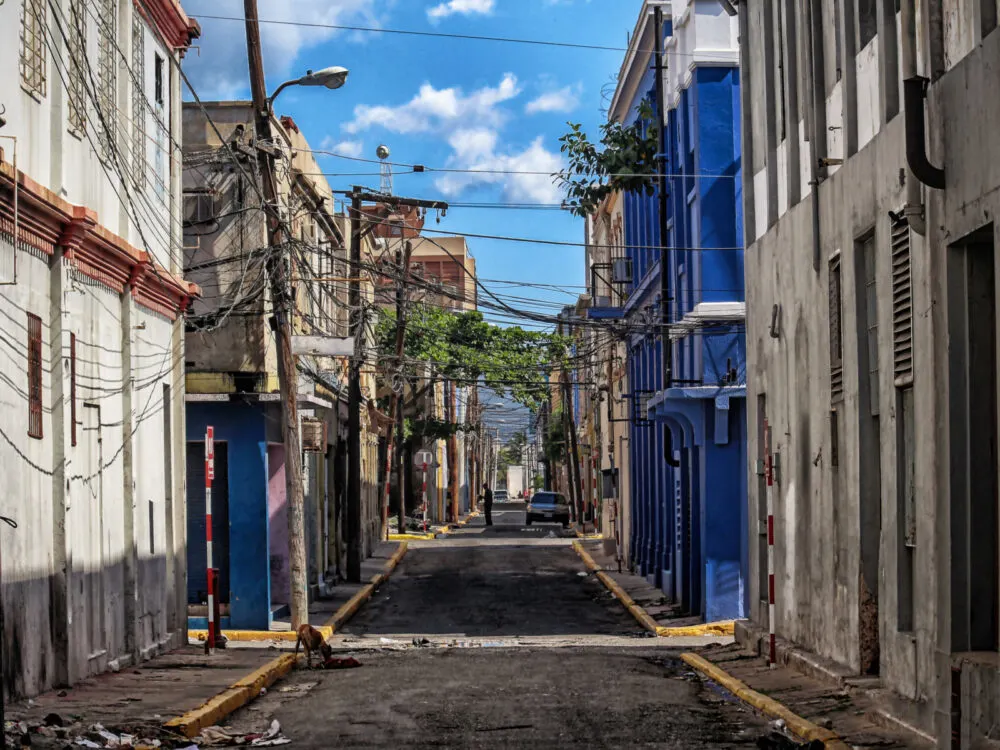
Travelbee Photography/Shutterstock
Crime in Jamaica is the worst in certain areas, so avoiding bad areas and sticking to safe regions is one of the most important things you can do to keep yourself safe. Avoid Spanish Town altogether, as it has one of the highest crime rates in the country.
Kingston and Montego Bay also have very high crime rates, but these are harder to avoid (and they have enough sites that you don’t want to). Knowing which neighborhoods to avoid is important.
In Kingston, avoid:
- Cassava Piece
- Grants Pen
- Salmagie
- Trench Town
There are too many other neighborhoods to avoid to list here, so search for a detailed list before you go. Mountain View Avenue, one of the main roads to the airport from Kingston, is a prime location for highway robbery, so take an alternate route instead and never drive at night.
In Montego Bay, some neighborhoods to avoid include:
- Bottom Pen
- Hart Street
- Mount Salem
- Canterbury
- Norwood Gardens
- Rose Heights
Things to Consider
Here are some additional safety tips for Jamaica:
- Never take photos of Rastafari or ganja fields without permission, as that angers people.
- The Jamaican sun is no joke, so wear plenty of sunscreen and hats.
- Jamaica is a highly homophobic country, both in its laws and in local attitudes. Out LGBT travelers may not feel safe. Never meet up with people through dating apps, as criminals entrap tourists that way.
- Switch up your routine to avoid attracting thieves. Even if you find a great restaurant, don’t go every night.
Frequently Asked Questions
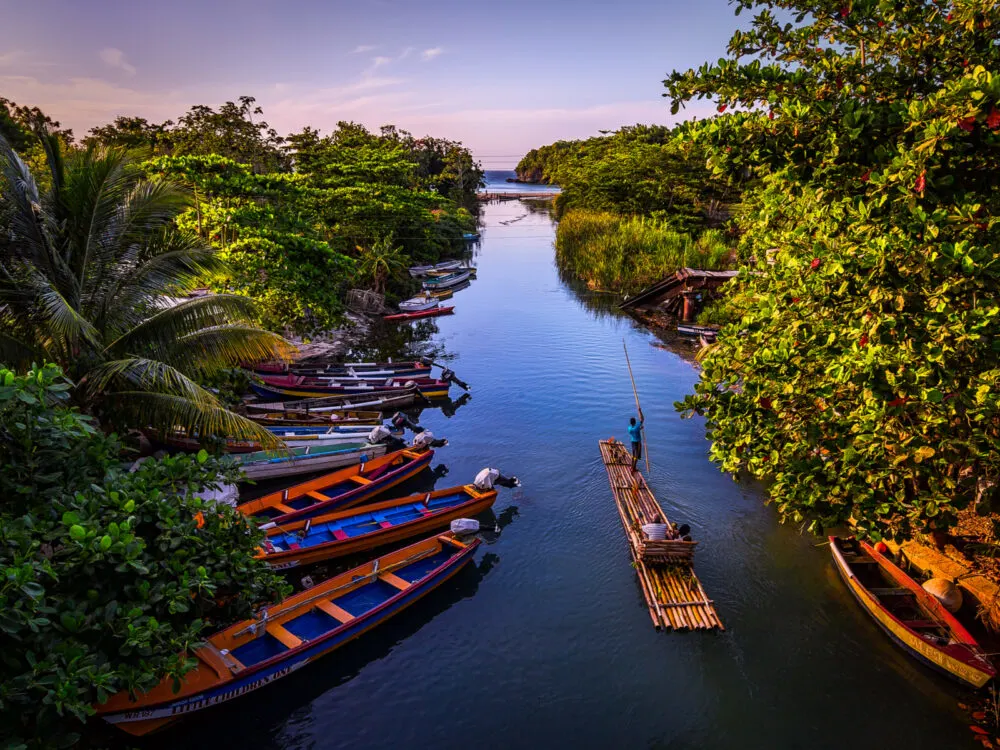
LBSimms Photography/Shutterstock
Here are some other questions travelers to Jamaica want to know the answers to:
What is the safest part of Jamaica for tourists?
Most resorts are very safe because they are essentially private villages just for tourists and have their own security. If you don’t want to spend your vacation holed up in a resort, check out smaller towns such as Ocho Rios, Port Antonio, and Negril.
Is Montego Bay Jamaica safe?
Montego Bay is a popular tourist destination, but it actually has a slightly higher crime rate than Kingston. The good news, at least for tourists, is that crime rates are highly concentrated in certain neighborhoods, so it is easy to avoid a bad incident.
Is Jamaica cheap for tourists?
Jamaica is one of the more affordable destinations in the Caribbean for tourists. It has a lower cost of living, so items such as food cost less than on neighboring islands, and a wider range of accommodations are available for all budgets.
Is Jamaica safe for female travelers?
Unfortunately, Jamaica is not the safest place for female travelers. Rates of sexual harassment are high, and women travelers are even sexually assaulted.
Are resorts in Jamaica safe?
Resorts in Jamaica are generally very safe. However, there have been cases of thefts from resort safes and sexual assaults of female guests, so do your research on which resort you want to stay in.
So, Is Jamaica Safe to Visit?
| 📈 Murder rate | 52.9 per 100k (high) |
| 👮♂️ Most common crime | Petty theft |
| 🏠 Worst neighborhood | Cassava Place |
| ❓ Safety tip | Stay on your resort |
Jamaica has a high crime rate, but bad incidents are usually avoided with the right precautions. You can either stay in a resort your entire vacation (see our top picks here) or venture outside while taking care not to explore unsafe areas. Happy travels!



